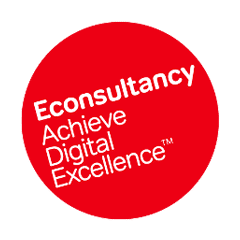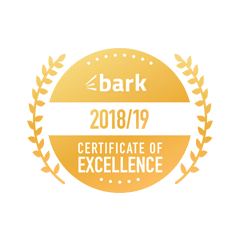
Intro to Search Engine Marketing UK: A Comprehensive Guide
Search Engine Marketing (SEM) is a crucial component of any successful digital marketing strategy.
Understanding Search Engine Marketing
Search Engine Marketing involves various tactics and techniques aimed at increasing a website’s visibility on search engine result pages. It encompasses both paid advertising, such as Pay-Per-Click (PPC) advertising, and organic strategies like Search Engine Optimization (SEO) and Social Media Marketing.
Search Engine Marketing (SEM) is a dynamic and multifaceted approach to online marketing. It is a comprehensive strategy that combines various techniques to enhance a website’s visibility and drive targeted traffic. By utilizing both paid and organic methods, businesses can increase their online presence and reach their target audience effectively.
Definition and Importance of Search Engine Marketing

Search Engine Marketing refers to the process of promoting a website’s landing pages by increasing its visibility in search engine result pages. It helps businesses drive more targeted traffic to their sites, increase brand awareness, and ultimately boost conversions and revenue.
The importance of Search Engine Marketing cannot be overstated. In today’s digital age, where consumers rely heavily on search engines to find information, products, and services, having a strong online presence is crucial for businesses. SEM allows companies to position themselves in front of potential customers actively searching for what they offer, increasing the chances of attracting qualified leads and driving sales.
The Role of Search Engine Marketing in Digital Strategy
In the ever-expanding digital world, SEM plays a vital role in a comprehensive marketing strategy. It enables businesses to connect with potential customers actively searching for products or services they offer. By targeting relevant keywords and optimizing their online presence, companies can improve their chances of being discovered by their target audience.
One of the key advantages of SEM is its ability to provide immediate results. Unlike other marketing tactics that may take time to yield outcomes, SEM allows businesses to quickly generate visibility and drive traffic to their websites. This makes it an invaluable tool for companies looking to gain a competitive edge in the online marketplace.
Furthermore, SEM offers a high level of measurability and control. With the use of analytics tools, businesses can track the performance of their SEM campaigns, measure the return on investment (ROI), and make data-driven decisions to optimize their strategies. This level of transparency and control empowers businesses to make informed marketing decisions and allocate their resources effectively.
Another aspect of SEM that makes it an integral part of a digital strategy is its versatility. SEM encompasses a wide range of tactics, including PPC advertising, SEO, and Social Media Marketing. This versatility allows businesses to tailor their approach based on their specific goals and target audience. Whether a company wants to increase brand awareness, drive website traffic, or boost conversions, SEM offers the flexibility to achieve these objectives.
In conclusion, Search Engine Marketing is a powerful and essential component of any digital marketing strategy. By leveraging both paid and organic techniques, businesses can enhance their online visibility, connect with their target audience, and drive measurable results. As the digital landscape continues to evolve, SEM will remain a crucial tool for businesses looking to thrive in the competitive online marketplace.
Components of Search Engine Marketing

Search Engine Marketing (SEM) is a comprehensive strategy that encompasses various components to drive targeted traffic and increase online visibility. Let’s take a closer look at the main components of SEM:
Pay-Per-Click Advertising
One of the key components of SEM is Pay-Per-Click (PPC) advertising. PPC advertising refers to the model where advertisers pay each time their ad is clicked. This type of advertising allows businesses to target specific keywords and display their ads prominently on search engine result pages (SERPs).
With PPC advertising on Google Adwords, businesses can achieve immediate visibility and attract potential customers who are actively searching for products or services related to their industry. By carefully selecting relevant keywords and creating compelling ad copy, businesses can drive high-quality traffic to their website.
Moreover, PPC advertising platforms, such as Google Ads and Bing Ads, provide advanced targeting options that allow businesses to reach their desired audience based on factors like location, demographics, and interests. This level of precision targeting ensures that businesses are reaching the right people at the right time, maximizing the chances of conversions and sales.
Search Engine Optimization
Another crucial component of SEM is Search Engine Optimisation (SEO)
SEO involves optimizing a website’s blog content known as (content marketing) and structure to improve its organic search engine rankings. By applying various techniques, businesses can increase their visibility in organic search results, driving targeted traffic to their site.
Keyword research plays a vital role in SEO. By identifying the most relevant and high-volume keywords related to their industry, businesses can optimize their website’s content to align with these keywords. This includes creating informative and engaging content that incorporates the identified keywords naturally.
In addition to keyword optimization, on-page optimization techniques, such as optimizing meta tags, headings, and image alt tags, help search engines understand the content and relevance of a website. Off-page optimization, such as link building, is also crucial for SEO success. By acquiring high-quality backlinks from reputable websites, businesses can improve their website’s authority and credibility in the eyes of search engines.
Overall, SEO is a long-term strategy that requires continuous effort and monitoring. However, the benefits of ranking high in organic search results can be substantial, as it can drive consistent and sustainable traffic to a website.
Social Media Marketing
In today’s digital landscape, Social Media Marketing (SMM) has become an integral part of SEM. SMM leverages social media platforms to reach and engage with target customers, building brand awareness and driving website traffic.
Platforms like Facebook, Twitter, and Instagram offer powerful advertising options that allow businesses to maximize their reach and impact. With highly advanced targeting capabilities, businesses can narrow down their audience based on demographics, interests, and behaviours, ensuring that their ads are seen by the right people.
Creating compelling and shareable content is essential for SMM success. By developing a strong online presence and fostering relationships with the audience, businesses can cultivate a loyal following and encourage user-generated content. This can lead to increased brand visibility and organic reach as followers share and engage with the content.
Furthermore, social media platforms provide valuable analytics and insights that businesses can use to measure the effectiveness of their campaigns. By analyzing metrics like engagement rate, click-through rate, and conversion rate, businesses can refine their social media strategies and optimize their advertising efforts.
In conclusion, Search Engine Marketing encompasses various components, including Pay-Per-Click advertising, Search Engine Optimization, and Social Media Marketing. By utilizing these components effectively, businesses can drive targeted traffic, increase online visibility, and ultimately achieve their marketing goals.
The UK Perspective on Search Engine Marketing
When it comes to Search Engine Marketing, the United Kingdom presents unique opportunities and challenges. Understanding the UK market dynamics and regulatory considerations is essential for success.
Unique Aspects of the UK Market
The UK market has its own distinct consumer preferences and behaviours. Businesses need to tailor their SEM strategies accordingly, taking into account cultural nuances, regional differences, and market trends. By understanding the UK market and aligning their efforts, businesses can effectively connect with their target audience.
Developing a Search Engine Marketing Strategy
To achieve desired results, businesses need to develop a well-rounded SEM strategy tailored to their specific goals and target audience.
Setting Goals and Objectives
Before diving into SEM, businesses should define clear goals and objectives. Whether it’s increasing website traffic, boosting conversions, or improving brand visibility, having measurable targets will guide the strategy and help assess success.
Identifying Target Audience
Understanding the target audience is essential to creating compelling ad campaigns and optimising online presence. Conducting market research, analyzing demographics, and identifying customer pain points will guide keyword selection and audience targeting.
Selecting the Right Platforms
Choosing the appropriate platforms to carry out SEM activities is crucial. Google Ads, Facebook Ads, and LinkedIn Ads are popular choices, but businesses should research which platforms align best with their target audience and goals. Striking the right balance between paid advertising and organic strategies is also important.
Measuring Success in Search Engine Marketing
Effectively measuring the success of SEM efforts is crucial to refine strategies and improve outcomes.
Key Performance Indicators for SEM
Businesses often consider metrics such as click-through rates, conversion rates, and return on ad spend as key performance indicators for their SEM efforts. Regular monitoring and analysis of these metrics provide valuable insights into the effectiveness of campaigns and help identify areas for improvement.
Tools for Tracking and Analysis
Many tools are available to track and analyze SEM efforts. Google Analytics, for example, provides valuable data on website traffic, user behaviour, and campaign performance. Other tools like SEMrush and Moz offer valuable insights into keyword research, backlink analysis, and competitor research.
Wrap Up Conclusion
Our search engine marketing services provide a powerful and ever-evolving digital marketing strategy that can help businesses in the UK reach their target audience effectively. By understanding the components of SEM, the unique aspects of the UK market, and developing a well-rounded strategy, businesses can maximize their online visibility and drive tangible results.
Simply get in touch to discuss your requirements, thanks. Jon















